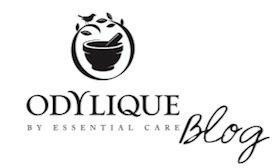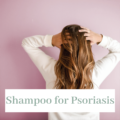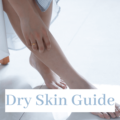Why Your Eczema Shampoo Isn’t Working
Fact: Many eczema shampoos contain ingredients that can irritate sensitive skin. We looked through the top 20 search results for the term eczema shampoo and found some pretty surprising products.
Spoiler alert! At the end of this article you can find a promo code to get a P&P only natural shampoo sample that’s used by people with eczema.
Meanwhile, back to those eczema shampoo search results…
Potential Irritants in Eczema Shampoo

The problem with some common shampoo ingredients is two-fold: There’s a risk of aggravating the scalp eczema, but you can also make an existing hand eczema or contact dermatitis worse by using a harsh shampoo.
Of the 20 shampoos that appear first in an online search for best eczema shampoo (as of early 2020), more than half contain ingredients that are known irritants. For example,
- TEA lauryl sulphate
- Sodium Laureth and Lauryl Sulphate
- Ammonium lauryl sulphate
- Cocamide DEA
- Polyquaternium-10
- Disodium EDTA
- MI – Methylisothiazolinone
- Isopropyl Alcohol
- Fragrance (parfum)
True, it depends what else is in the formulation to lessen irritation, or how much of these ingredients are used. But the most beneficial eczema shampoo surely starts from the premise of zero potentially irritant ingredients.
Certainly, all sulphates are best avoided in an eczema shampoo. Some sulphate detergents are slightly less harsh than others, but there are many milder alternative cleansing ingredients around to fulfil that function of a shampoo.
In Odylique’s Gentle Herb Shampoo, we use coco glucoside which has shown a long history of compatibility with eczema. Other mild detergents that are usually fine for sensitive skin include amphoacetates, glutamates and sarcosinates.
No Skin Soothers

Very few of the eczema shampoos in the 20 top search results had any ingredients to actively soothe eczema. Most go down the route of benign or neutral ingredients which don’t irritate, but don’t help the condition either.
This misses a huge opportunity. An itchy scalp with tendency to dryness can genuinely benefit from natural moisturisers and calming botanical extracts. All the more so, if the shampoo is left on the scalp for a few minutes so that the ingredients can absorb.
For example, in Odylique’s Gentle Herb Shampoo we use coconut oil – which has a particular affinity with the scalp and hair, alongside soothing herbs of aloe vera, chamomile and rosemary. By leaving the shampoo to soak into the hair and scalp for a few minutes, the active ingredients get to work. And many people also find they don’t need a separate conditioner.
pH Balance (or lack of it)
In general, few shampoos mention what their pH is – i.e. how acid or alkaline. The ideal pH for a shampoo, or what’s known as pH balanced, is 5-5.5; the pH of the scalp. With more alkaline (higher pH products), the risk of scalp irritation is high. And all the more so with an eczema prone scalp. The scalp’s ‘acid mantle’ is more open to damage, allowing environmental irritants to trigger itching and soreness.
N.B. Our shampoos are pH balanced!
Organic Certification
Although there are plenty of shampoos on the marketplace that declare ‘natural’ and ‘organic’ ingredients, there are few shampoos with independent organic certification. Anyone can claim that their product is natural (even with only one naturally-derived ingredient) to try to paint their product as gentle and safe, but when it comes to conventional shampoos you can bet that most of them are packed with synthetic chemicals. For assurance that a product is truly organic/natural, look for brands that have a genuine* independent logo from a certifying body like The Soil Association or Ecocert.
*Many brands come up with logos themselves to put on their packaging, which aren’t true certifications!
Healing Botanicals
Another benefit of choosing a natural shampoo is that it is more likely to be made up of plant-based ingredients that have an impact on the health of the skin (but look at the product label to double-check). Ingredients like selenium, vitamin D, essential oils and coconut oil have eczema-benefits according to studies and can be found in some natural shampoos.
 Inside Out
Inside Out
If you feel you’ve done all you can with skincare and haircare with no avail, it may be time to look at what you’re feeding your skin from the inside. Eczema, like any skin condition, doesn’t just appear from nowhere. There is always a root cause. Although genetics can play a factor, it’s important to know that epigenetics play an even larger role. Epigentics ‘rule’ your genetics, by acting like the ‘on/off’ switch to your genes – and the good news is that you’re in control. Epigenetics are controlled by environmental factors, including diet and toxin exposure. The appearance of eczema could be to do with an inflammatory diet, or that you’re exposure to environmental toxins is a little too high. We can’t say what the cause may be, but trying an elimination diet or consulting with a healthcare practitioner may help you get to the bottom of the issue.
I suffer from itchy scalp at back of my head and it’s the only Shampoo that takes it away.
Brigitta, Odylique Customer
Summary Tips for Choosing Eczema Shampoo
When choosing a shampoo for eczema, opt for a sulphate-free shampoo that has plenty of high-quality soothing botanicals. Always choose one that is pH balanced. And avoid shampoos with ‘parfum’ as it could be an artificial fragrance – a very common cause of eczema and contact dermatitis.
If you’d like to find out more about Odylique’s Gentle Herb Shampoo, or try one FREE 20ml sample (just pay the price of postage) click here, and use the code EczemaShampoo at check out!
For more tips and advice on managing eczema please sign up to our newsletter. You can also reach us at customercare@odylique.co.uk or 01638 491022.
What is Dandruff? How To Beat A Flaky Scalp Naturally.

You take care of your hair; you wash it regularly,…





